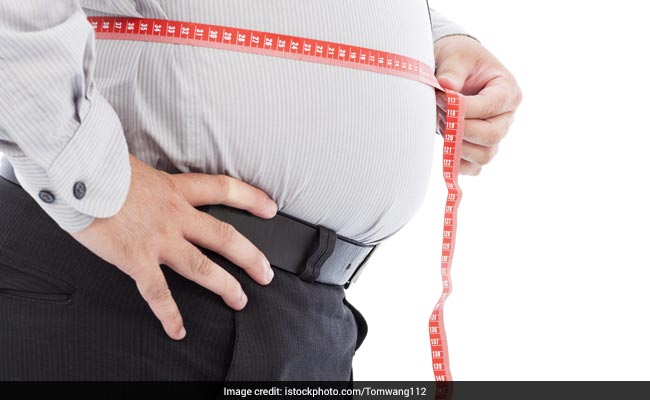The truth about fat and bloating.
The truth about fat and bloating.
Blog Article
Recognizing the Distinction Between Bloating and Fat: a Vital Guide for Digestive Health
Recognizing the distinction in between bloating and excess body fat is critical for anyone worried with gastrointestinal health. While bloating presents as a short-term and usually unpleasant condition, usually connected to dietary habits or digestive disturbances, body fat stands for a much more irreversible change in one's body.
Defining Bloating and Fat
Bloating and fat are 2 unique physical phenomena that can considerably impact an individual's convenience and body picture. Bloating describes the momentary swelling or distension of the abdomen, often accompanied by pain or a sensation of fullness. This condition might develop from different variables, consisting of dietary choices, digestive system problems, or fluid retention. Bloating is typically a temporary occurrence and can fluctuate throughout the day, often resolving with way of life changes or medical treatments.
In comparison, body fat is a more irreversible and stable element of human physiology, mostly working as a power get and playing important roles in hormonal agent regulation and insulation. Body fat is categorized into two kinds: subcutaneous fat, which exists just below the skin, and natural fat, which surrounds internal body organs. While excess body fat can bring about health and wellness problems, it is necessary for overall physical functions.

Reasons For Bloating

Furthermore, food intolerances, such as lactose or gluten intolerance, can lead to bloating when the body battles to process certain substances - difference between bloating and fat. Eating also swiftly or eating carbonated drinks can likewise intensify the concern, as these habits present excess air right into the digestive tract
Way of living variables, including tension and absence of exercise, can further add to bloating by affecting digestive tract mobility. Certain clinical conditions, such as cranky bowel disorder (IBS) or stomach obstruction, may additionally lead to chronic bloating. Comprehending these reasons is necessary for effectively taking care of and relieving bloating, enabling people to make enlightened nutritional and lifestyle options that support their digestion wellness.
Symptoms of Bloating vs. Fat
Differentiating in between the symptoms of bloating and excess fat is vital for recognizing one's body and resolving discomfort successfully. Bloating typically provides as a feeling of fullness or pressure in the abdominal area, commonly come with by visible distension.
In comparison, excess fat shows up in different ways. While it may add to a feeling of thickness, it normally does not create the intense discomfort related to bloating. Instead, excess fat has sites a tendency to collect gradually, bring about an adjustment in body shape and size with time. People might see a rise in body circumference, specifically around the midsection, but this does not commonly existing with the prompt feelings of fullness or distension.

Acknowledging these distinctions is important. While bloating is commonly momentary and connected to dietary variables or gastrointestinal issues, excess fat shows an extra chronic problem calling for lifestyle modifications. Understanding these signs and symptoms encourages people to seek ideal options customized to their certain worries concerning digestive wellness and body structure.
Taking Care Of Bloating
Reliable administration of bloating calls for a diverse method that resolves both nutritional choices and lifestyle behaviors. It is crucial to recognize and remove certain foods that might trigger bloating, such as those high in fiber, gluten, lactose, or certain fermentable carbs (FODMAPs) Keeping a food diary can help identify these triggers and overview changes.
Incorporating smaller, a lot more regular dishes as opposed to big ones can likewise reduce bloating, as it eases the additional resources gastrointestinal process (bloating vs fat). Remaining well-hydrated is important, as adequate liquid intake help food digestion and aids protect against constipation, which can add to bloating
Additionally, participating in normal exercise advertises intestinal motility and reduces bloating. web link Straightforward exercises, such as walking or yoga, can efficiently ease pain. Conscious eating practices, such as consuming slowly and chewing food completely, might even more improve digestion and limitation air swallowing.
When to Seek Assistance
Identifying when to seek clinical aid for bloating is essential, as consistent or serious signs and symptoms may show a hidden health and wellness concern. If bloating is accompanied by extra worrying signs and symptoms such as substantial stomach pain, inexplicable weight loss, anal bleeding, or constant nausea or vomiting and throwing up, it is necessary to consult a medical care specialist. These indicators might recommend conditions such as short-tempered bowel disorder, stomach obstruction, or perhaps much more serious concerns like cancer cells.
Furthermore, if bloating persists despite nutritional adjustments or over-the-counter treatments, it requires more examination. Individuals with a background of food poisonings ought to be especially alert, as their risk for difficulties may be higher. Furthermore, if bloating occurs following the usage of specific foods, it might suggest food intolerances or allergic reactions that necessitate nutritional changes or testing.
Final Thought
In summary, identifying between bloating and excess body fat is essential for digestive wellness and overall well-being. Bloating, a short-term condition typically connected to nutritional factors and digestive system issues, contrasts dramatically with the steady buildup of body fat.
Report this page